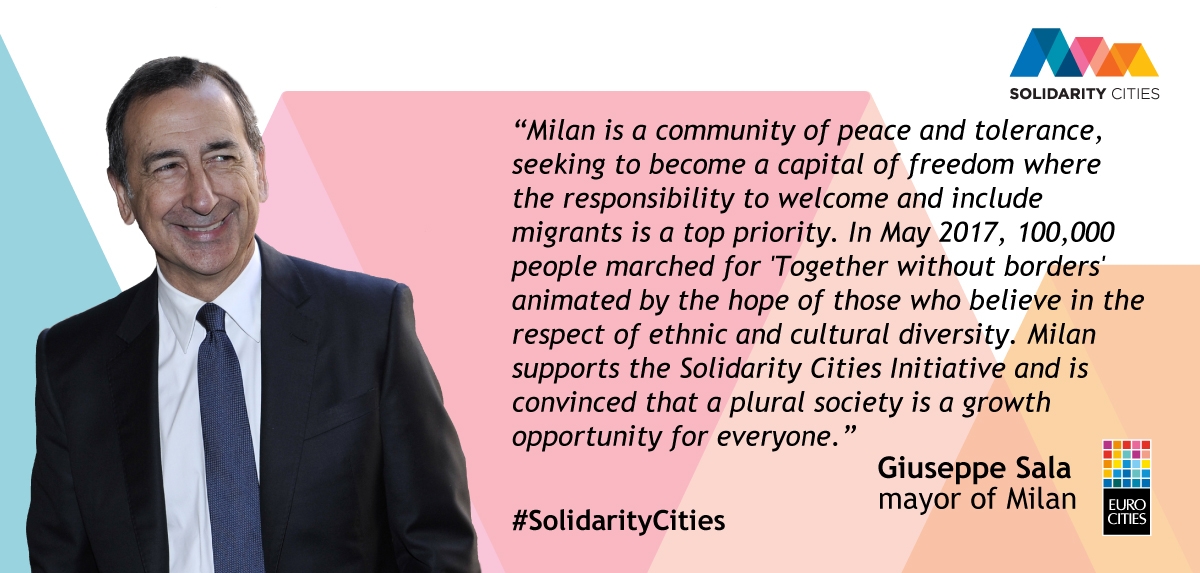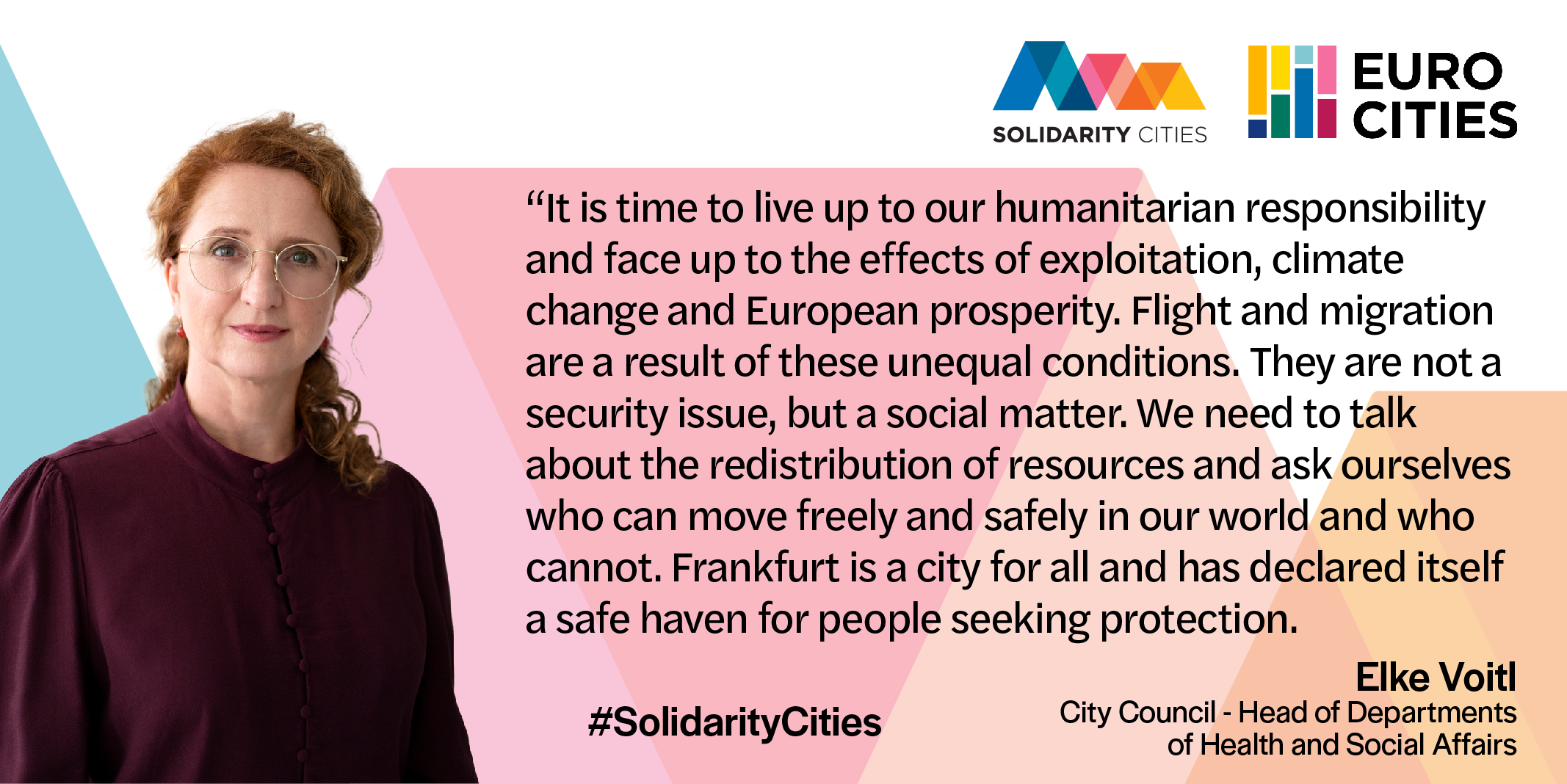
Elke Voitl, Frankfurt’s City Council – Head of Departments of Health and Social Affairs, on Solidarity Cities
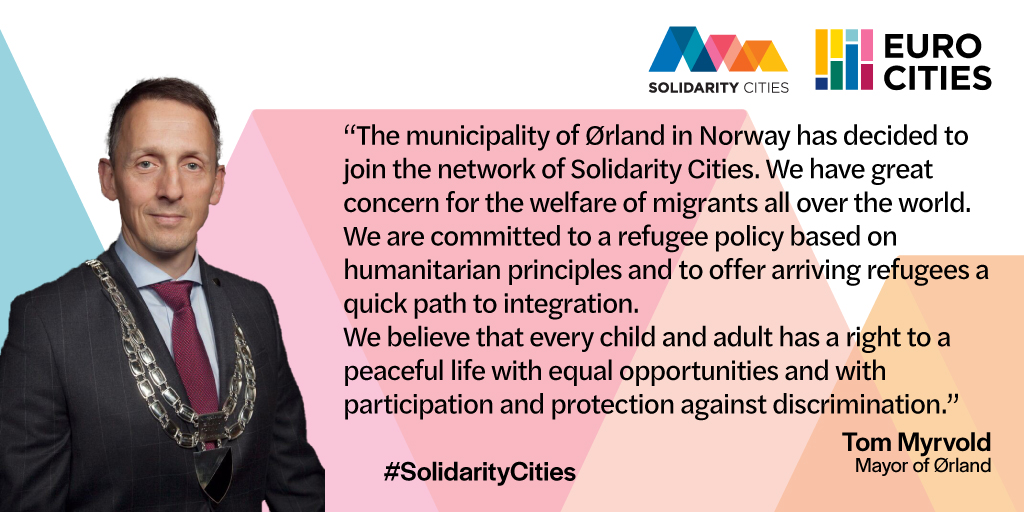
Tom Myrvold, Mayor of Ørland on Solidarity Cities
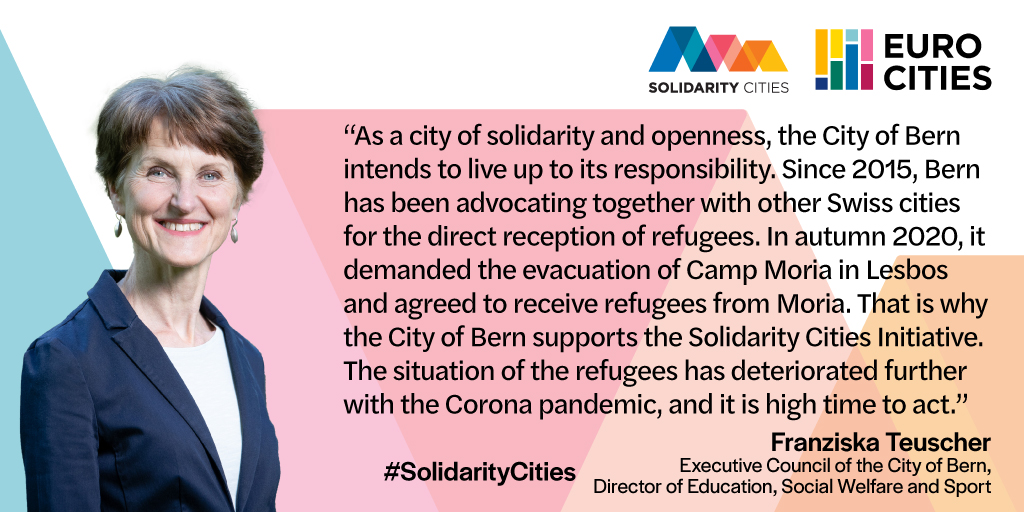
Franziska Teuscher, Executive Council of Bern on Solidarity Cities
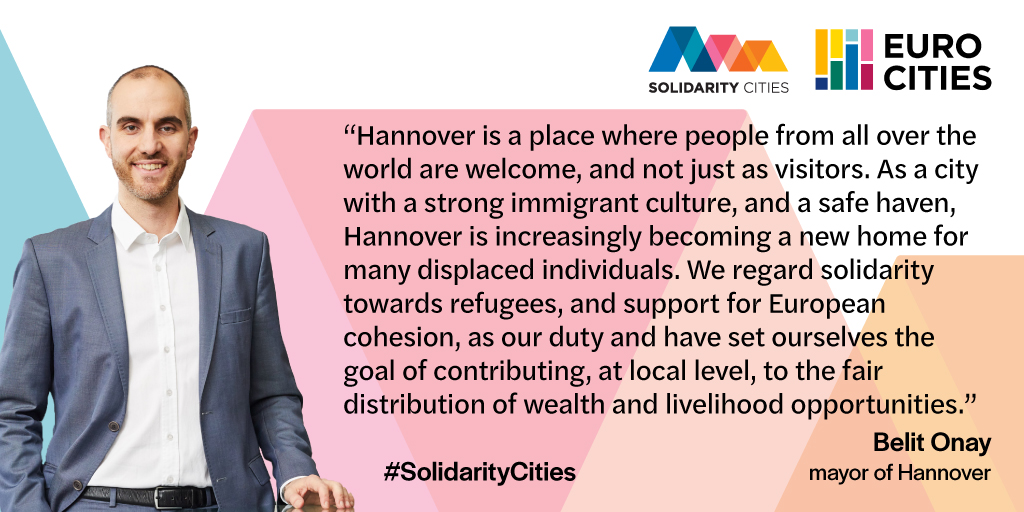
Belit Onay, Mayor of Hannover on Solidarity Cities
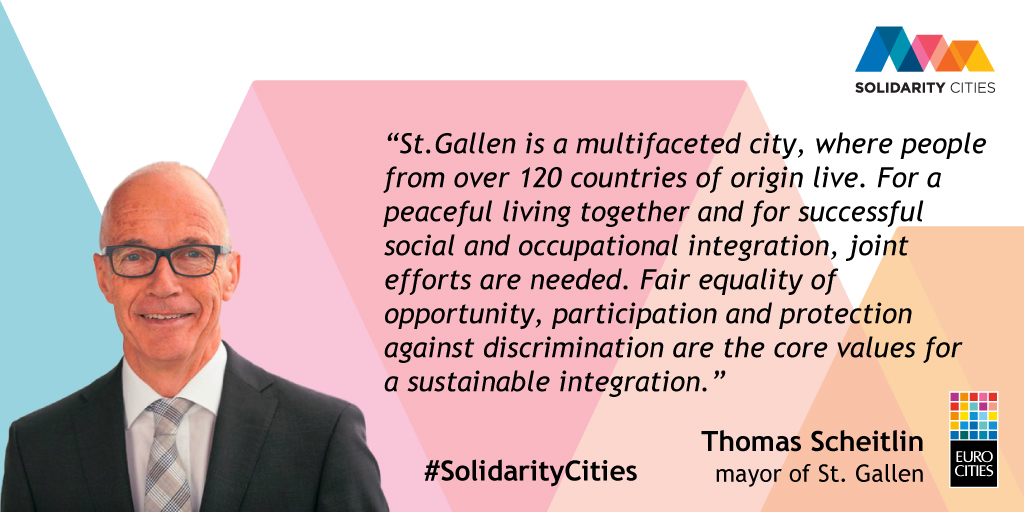
Thomas Scheitlin, Mayor of St. Gallen on Solidarity Cities
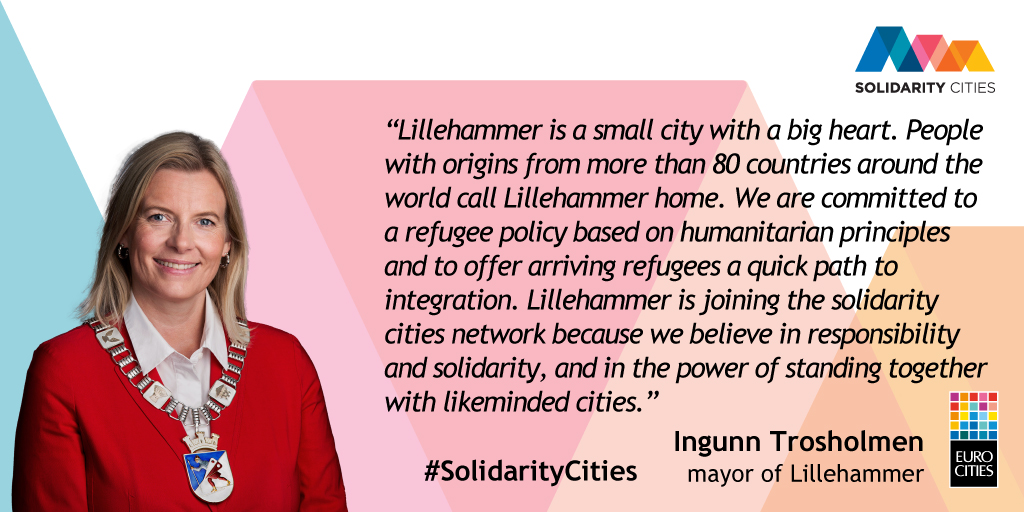
Ingunn Trosholmen, Mayor of Lillehammer on Solidarity Cities
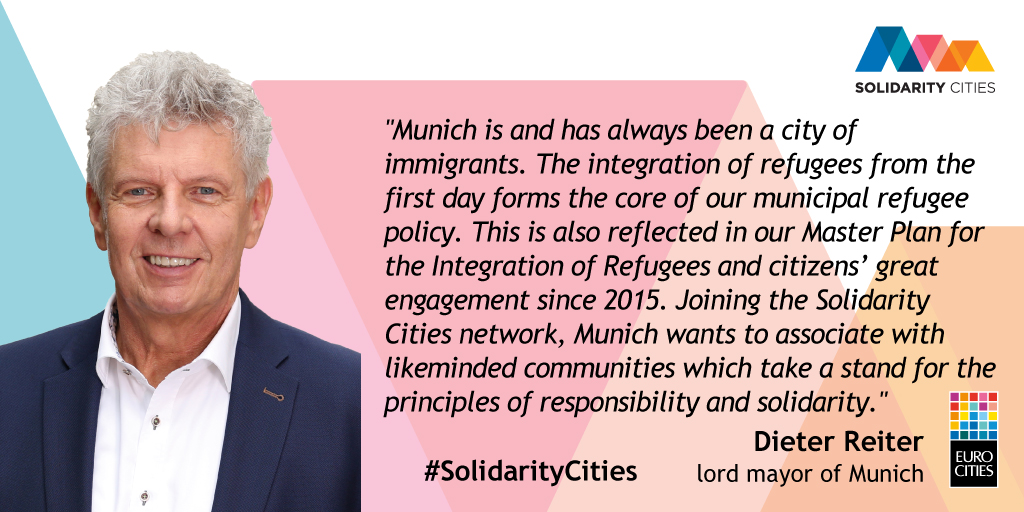
Dieter Reiter, Mayor of Munich on Solidarity Cities
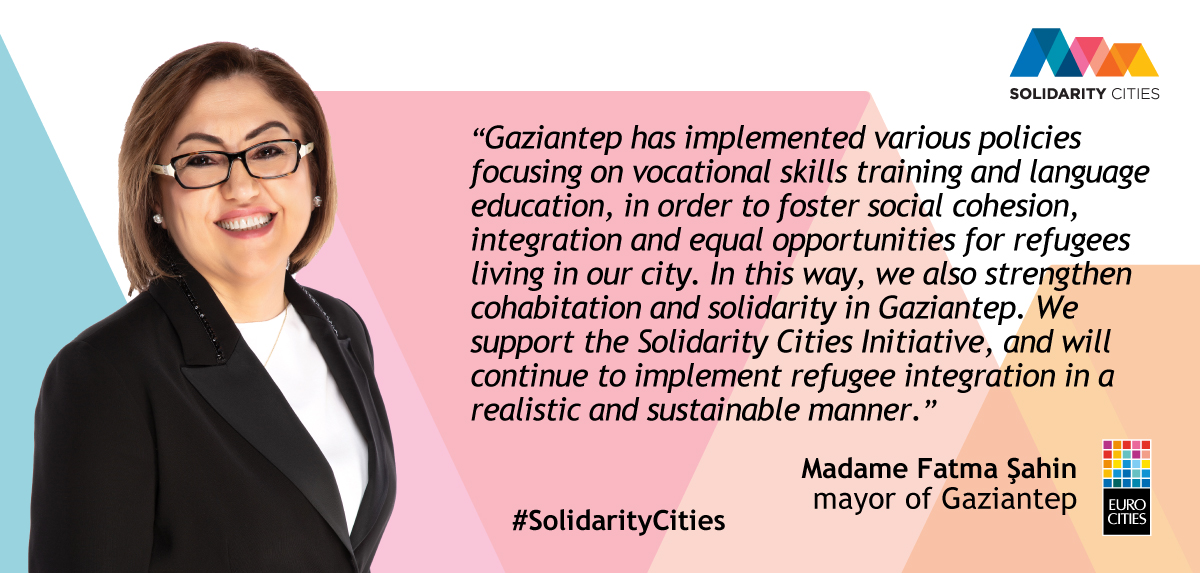
Fatma Şahin, Mayor of Gaziantep on Solidarity Cities
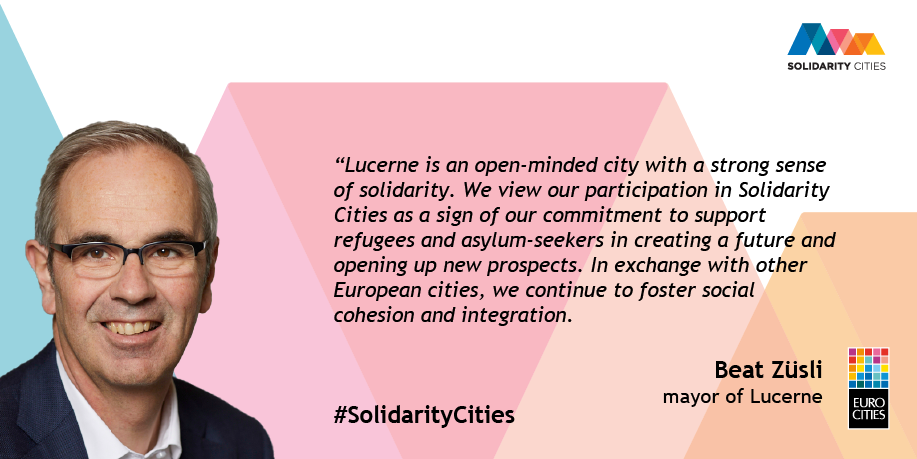
Beat Züsli, Mayor of Lucerne on Solidarity Cities
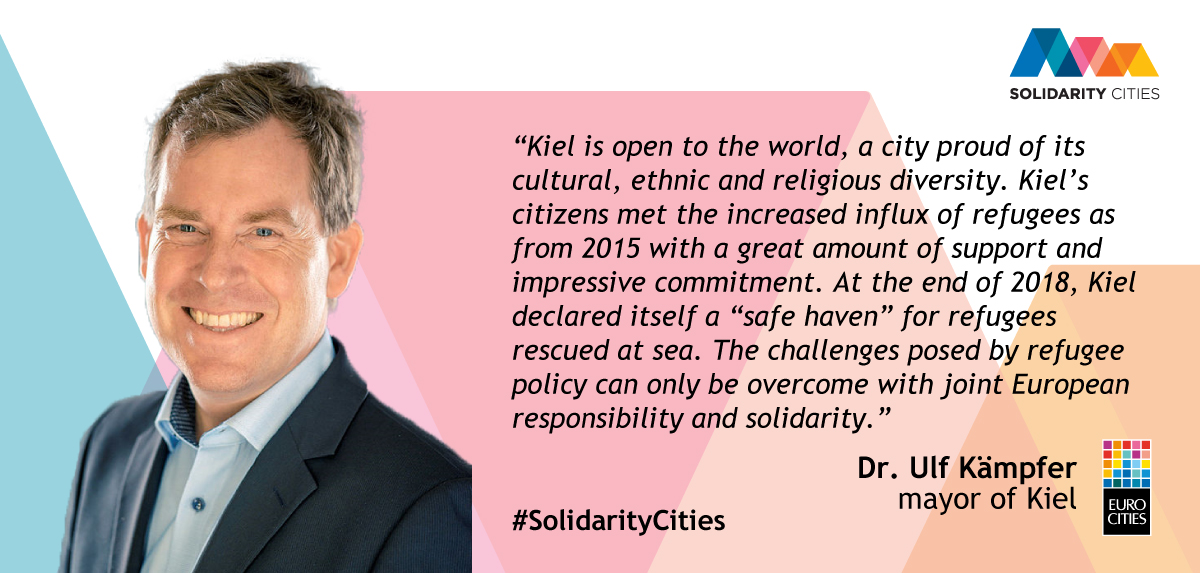
Dr Ulf Kämpfer, Mayor of Kiel on Solidarity Cities 2
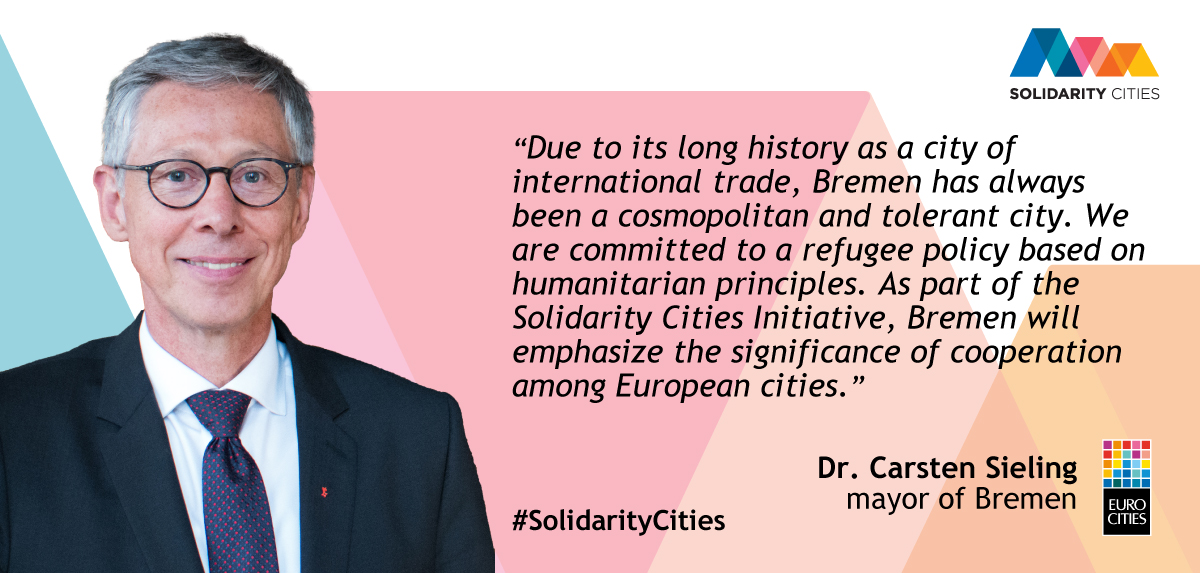
Dr. Carsten Sieling, Mayor of Bremen on Solidarity Cities
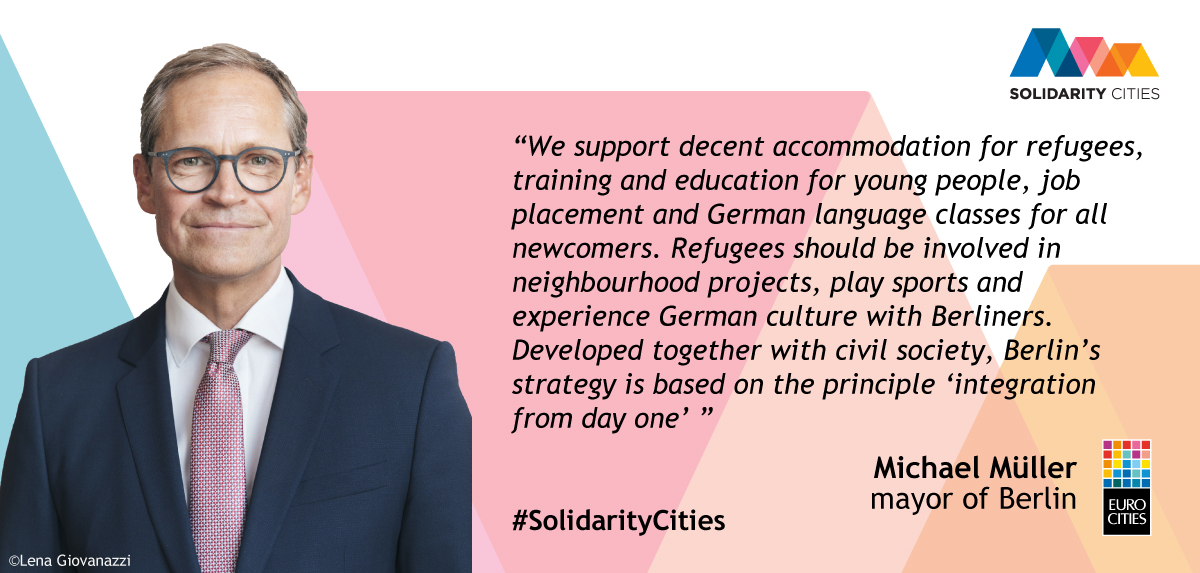
Berlin joins Solidarity Cities
Video of the Solidarity Cities study visit in Milan 8-9 November 2018
The video shows the study visit organised in the city of Milan under the EUROCITIES Solidarity Cities initiative.
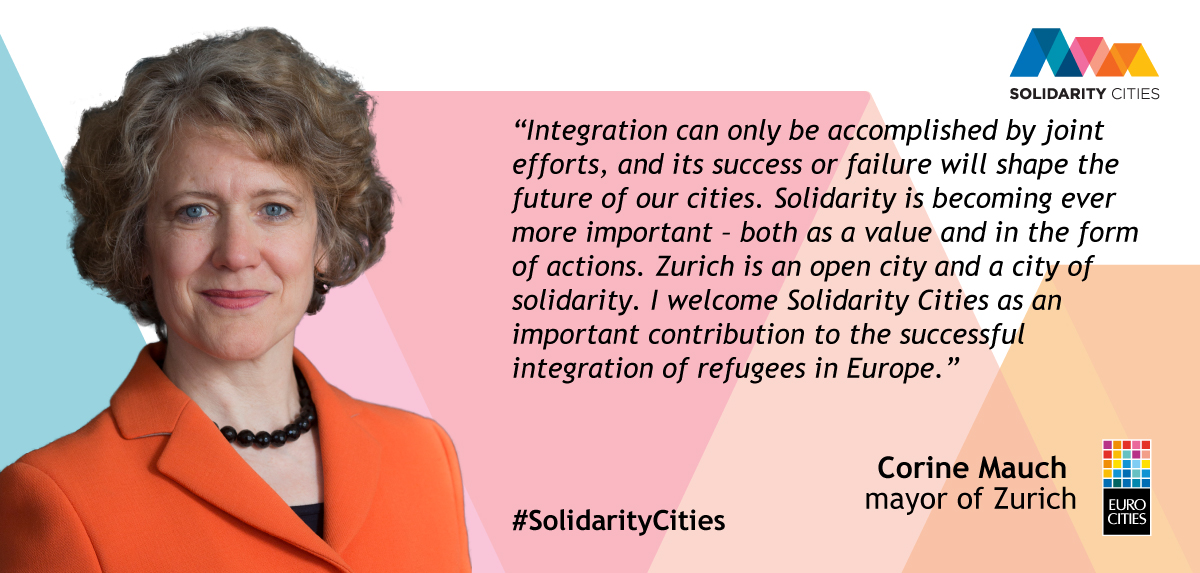
Corine Mauch, Mayor of Zurich on Solidarity Cities
CITIES AND FOUNDATIONS:
WORKING TOGETHER TOWARDS INCLUSIVE EDUCATION FOR REFUGEES
EUROCITIES organises on 18 September 2017 from 11:00 to 16:30 an expert meeting focused on city-foundation collaboration in the field of education for refugees and asylum seekers. This event will be hosted by the European Foundation Centre in the Philanthropy House in Brussels.
The event, organised in the framework of the Solidarity Cities Initiative and with the support of the Open Society Education Support Program, will be attended by experts from Think Tanks, European Commission services, European Parliament, NGOS, Foundations and Philanthropies and Representatives of cities members of EUROCITIES.
It will aim at taking stock of existing initiatives and at exploring possible steps forward to maximise the impact of common work between foundations and cities, through knowledge exchange and transfer of expertise. It will also create vital links between foundations and cities with the hope of seeing examples of city-foundation collaborations in the field of education flourish across Europe.
